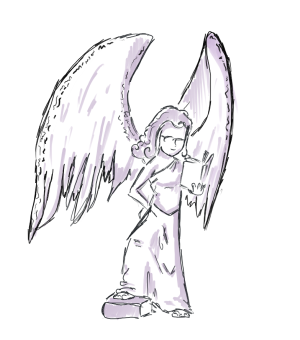Ah well, push it through MdE through EME to MnE you get and broad assumptions here:
iċ eom (iċ by the way is pronounced ich) -> I am
þū eart (þū by the way being pronounced 'thoo') ->tu art -> thy/you art -> you are
Need I even bother with the next one? No.
I don't know about the next one. But the 'wē' of the second form is obvious.
Interestingly, 'you' comes from the formal French 'vous' which was only used to address those of higher status, customers or strangers. Therefore the English language has true equality by addressing everyone as 'you' rather than differentiating between classes/situations/people we don't know.
And quite useful too! On occasion. French has one 'to be'. OE has two forms of bēon, hence the OR options and also wesan which also means to be.
Apparently.
View Single Post
-
2009-12-08, 05:03 PM (ISO 8601)Firbolg in the Playground


- Join Date
- Apr 2007
- Location
- The Black Desert
- Gender

 Re: Rpgsr4me's Ravenous, Roaring, Raging Rampage of Random Banter #134
Re: Rpgsr4me's Ravenous, Roaring, Raging Rampage of Random Banter #134
Bathatar!
Squid bones are lies.


 il/elle and él/ella; nous and nosotros; tu and tú. It's not surprising at all given the romance language deal, but it's nevertheless somehow amusing.
il/elle and él/ella; nous and nosotros; tu and tú. It's not surprising at all given the romance language deal, but it's nevertheless somehow amusing.
